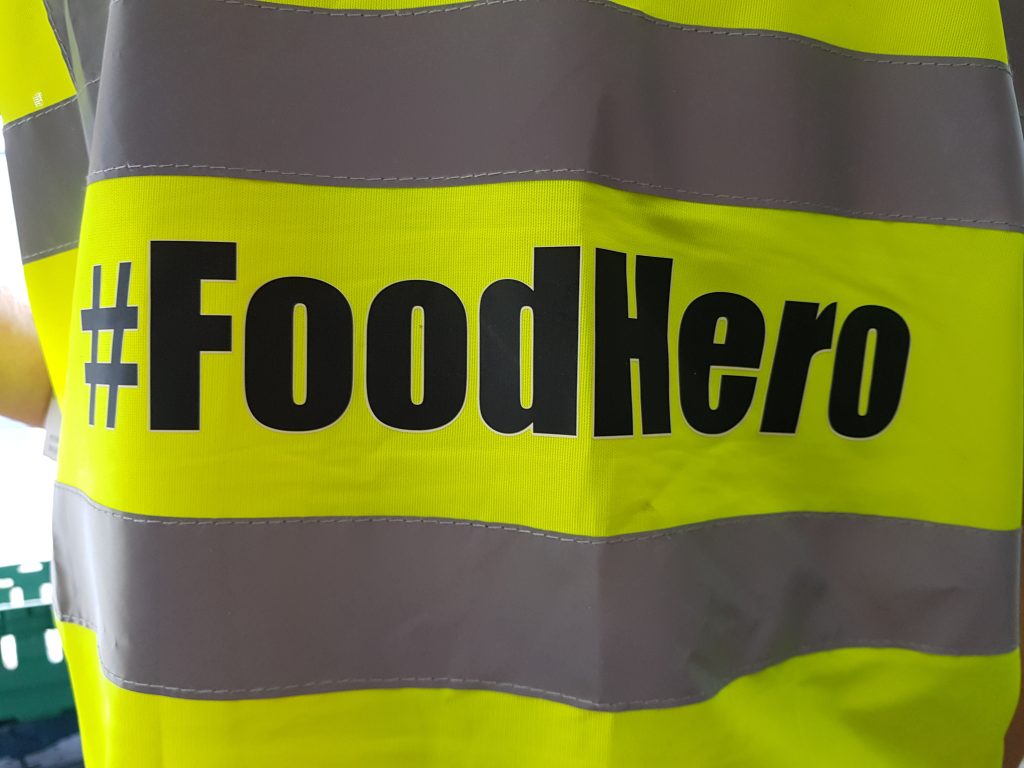I would say recently that the idea of giving to those less fortunate has grown to the forefront of lots of people’s minds. For me I always think about how I can help others by #donating items that I don’t need anymore.
In today’s post I want to focus on FareShare. FareShare is a charity aimed at relieving food poverty and reducing food waste in the UK; Sustainable Development Goal 2 – Zero Hunger. They do this by accepting food donations from schools, businesses, supermarkets and individuals like you and me. Here on campus we have been donating surplus food to FareShare for nearly 3 years, some donation events have been more popular than others but this is something that myself and lots of colleagues on campus want to push further.
For now I would say keep your eyes and ears open to the new possibilities, hopefully in connection with Kent Union who desperately want to achieve the same goal of eliminating food poverty.
So that I could get a better understanding of how FareShare operate I took the time to visit them one morning at their warehouse in Ashford, during my visit I learnt all about how they accept food donations, what they do once it arrives back at the warehouse and how they distribute their food boxes to the local community.
You may have seen supermarkets like Tesco who have the metal cages at the front of their stores accepting food donations from customers, this is one of the ways that FareShare have a constant stream of food donated, and there other main donation stream is surplus food that hasn’t been sold at the supermarkets themselves. Businesses deliver to FareShare on a regular basis with foods such as meats, fish, fresh fruit and vegetables, packaged foods, tins, cans, cereals to name a few and other household essentials such as toiletries, baby items and feminine care. Once these deliveries arrive the warehouse team quickly get to work with storing food into the correct locations and in the correct way so that they can easily be handpicked and stay fresh. During this time they look at items that are due to pass their use by date soon and the office team ring around their customers telling them that there are items that can be collected for free, therefore eliminating the food going to waste and to waste disposal.
Another team of workers (including volunteers) then hand pick items to make up a food box, these come in 3 sizes, family of 2, family of 4 or family of 6, each box has a standard pick list such as a pasta, a sauce, a meat, a vegetable etc., they then also have ‘wild’ items such as a cake or something that has come into the warehouse not as per standard. These boxes are then sold to FareShare members at a very low cost and tend to go to community centres, women’s refugees etc. The other boxes are then taken to places such as town halls, churches etc. where the community come and collect using vouchers that they receive.
What I found astonishing is how much food that gets donated, it also makes you think that all this food does get used, meaning that there is so many people who rely on this service which in today’s society shouldn’t have to exist.
We won’t be able to solve food poverty overnight but even if we are able to help in some way by donating our surplus food we need to do this. So follow us on twitter, Instagram and look on our website for regular updates on when we are doing food drives on campus and for more information on how you can get involved.
